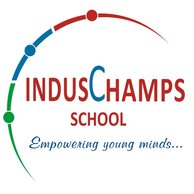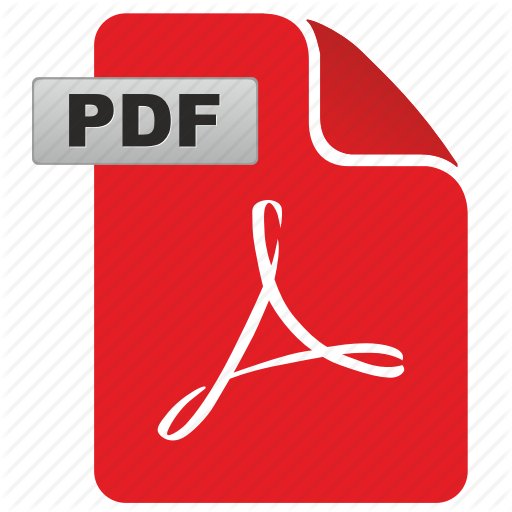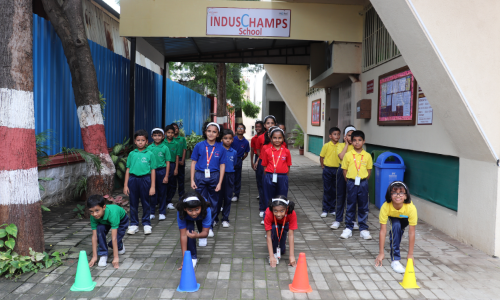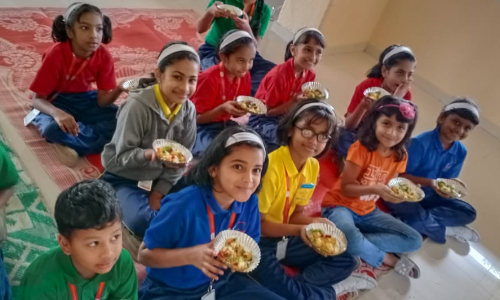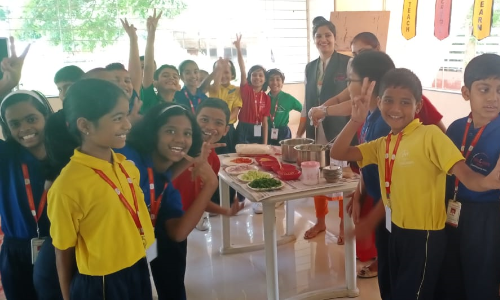Teaching Methodolgy
It might seem unrealistic now, but in the not-too-distant future positions like this will be a reality. We wish partnering with parents to ensure every child is prepared for the future.
The Primary school is an important chapter in every child’s education. The transition from Pre Primary to Primary Education is a phase of major transformation where the child needs to adjust to the increased hours of schooling and routine. Many children take to it easily whereas others need time to adjust to the same. So we aim at making children accustomed to this transition smoothly and gradually.
It is important to remember that each child is different; some may find parts of their learning program more challenging than others.
In these years your child will develop a deeper understanding of the relationship between school, home and the world outside their local community. Your child is now becoming more capable of concentrating on tasks for longer periods of time.
Your child will be supported to ensure their primary school years are positive, challenging and improve their confidence about themselves, their learning and their interactions with others. This is a time when school strives in providing opportunities for students to take responsibility for their learning and demonstrate their independence.
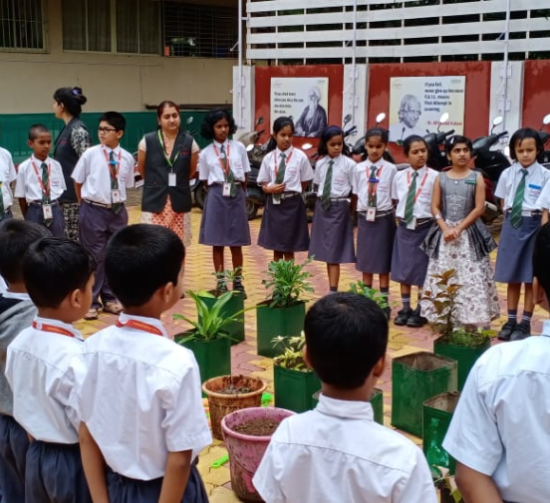
Academic Program
We follow the CBSE Curriculum but go way beyond it in terms of methods and inputs.
NCERT Books are Prescribed for Std 1-5 and we follow “NO HOMEWORK POLICY” for STD 1 & 2.
Classes I to VI have the following scholastic and co-scholastic subjects.
Std I to V
- English
- Maths
- EVS
- Hindi
- Marathi
Std VI onwards
- English
- Maths
- Social Studies
- Science
- Hindi
- Marathi
Co-scholastic subjects :
- Computer
- Art
- Yoga
- Games
- Dance
- Singing
- Karate
- CCA
- Library
- G.K.
- Life Skills
- Value Education
- Physical Education
- Skating
Book List 2023-24
CBP Calendar 2022-23
Assesments
| Std 1 & 2 Assessment Timetable | ||
|---|---|---|
| Assessment | Starting date | End date |
| PT1- UT1
UT2 |
10-Jul-23 | 14-Jul-23 |
| 24-Aug-23 | 29-Aug-23 | |
| MIDTERM EXAM | 3-Oct-23 | 20-Oct-23 |
| PT2- UT3
UT4 |
11-Dec-23
13-Jan-24 |
15-Dec-23
19-Jan-24 |
| FINAL EXAM | 28-Feb-24 | 15-Mar-24 |
| * Midterm & Final exams will have co-scolastic subjects exam (GK/ VE/ Drawing & Computer) during the regualr school hours in the respective periods. | ||
| Std 3 – 5 Assessment Timetable | ||
|---|---|---|
| Assessment | Starting date | End date |
| PT1 | 8-Jul-23 | 14-Jul-23 |
| MIDTERM | 3-Oct-23 | 20-Oct-23 |
| PT2 | 12-Jan-24 | 19-Jan-24 |
| FINAL | 28-Feb-24 | 15-Mar-24 |
| * Midterm & Final exams will have co-scolastic subjects exam (GK/ VE/ Drawing & Computer) during the regualr school hours in the respective periods. | ||
| Std 6 – 8 Assessment Timetable | ||
|---|---|---|
| Assessment | Starting date | End date |
| PT1 | 8-Jul-23 | 14-Jul-23 |
| MIDTERM | 3-Oct-23 | 20-Oct-23 |
| PT2 | 12-Jan-24 | 19-Jan-24 |
| Pre Final Assessment | 12-Feb-24 | 16-Feb-24 |
| FINAL EXAM | 28-Feb-24 | 15-Mar-24 |
| * Midterm & Final exams will have co-scolastic subjects exam (GK/ VE/ Drawing & Computer) during the regualr school hours in the respective periods. | ||
| Std 9 Assessment Timetable | ||
|---|---|---|
| Assessment | Starting date | End date |
| PT1 | 8-Jul-23 | 14-Jul-23 |
| MIDTERM | 3-Oct-23 | 20-Oct-23 |
| PT2 | 12-Jan-24 | 19-Jan-24 |
| Pre Final Assessment | 12-Feb-24 | 16-Feb-24 |
| FINAL EXAM | 28-Feb-24 | 15-Mar-24 |
| * Midterm & Final exams will have co-scolastic subjects exam (GK/ VE/ Drawing & Computer) during the regualr school hours in the respective periods. | ||
Extra Curricular Activities
In the Classroom
The curriculum is organized in the following learning areas: English, Mathematics, Hindi, Marathi, Science, Health and Physical education, Environmental Studies, Creative Arts, Library Skills and Computer science.
There are also general capabilities included in the curriculum to support students to develop their thinking skills, ethical and intercultural understandings, and personal and social capabilities.
Your child will continue to build on the knowledge and skills developed in English and Mathematics. They will be made aware of new content and ideas to extend their understanding of and thinking about local and national people, events and issues.
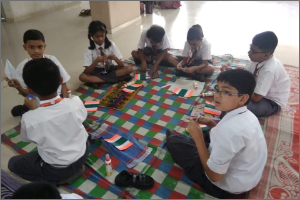
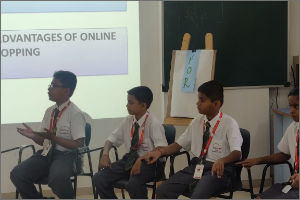
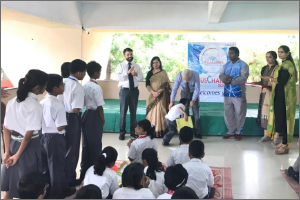
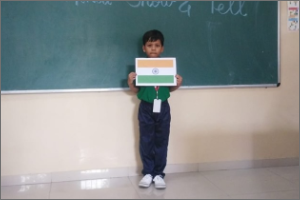
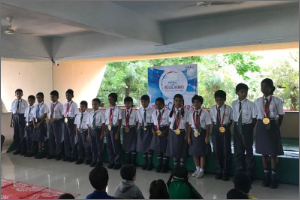
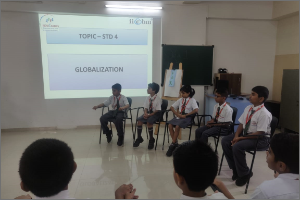
Students At This Stage
- Increase literacy and numeracy skills
- Build thinking skills and apply these to the different topics and contexts being explored
- Work cooperatively with others to extend their learning
- Participate in physical activities to develop motor and movement skills
- Express knowledge and understanding in varied ways, including written, spoken and visual presentations
